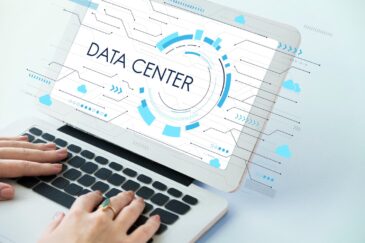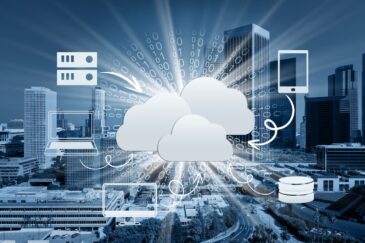Key Considerations While Choosing a DBMS for Your Applications

- March 17, 2023
- Jhansi Rani
- 0
A system for managing and manipulating databases is known as a Database Management System (DBMS). It is comprised of a collection of computer programs that enable users to structure, create, modify, store, retrieve, and organize data. A DBMS provides an interface between the user and the database, allowing users to access and manipulate data without understanding the underlying data structures or programming languages.
Essential functions of a DBMS include data storage and retrieval, data security, data integrity, and data backup and recovery. A DBMS also provides mechanisms for concurrency control, ensuring that multiple users can access the database simultaneously without interfering with each other’s work. Some examples of popular DBMS include Oracle SQL, MySQL, Microsoft SQL Server, and PostgreSQL. DBMS are widely used in various applications, including business, government, education, and scientific research.
Key Benefits of DBMS
A DBMS provides a reliable, secure, and efficient way to manage data, helping organizations to make better-informed decisions and improve their operations. It offers several benefits:
Data Sharing and Integration
A DBMS allows multiple users to access, modify, and share data simultaneously, meaning that data can be integrated from various sources, eliminating the need for data redundancy and improving data consistency.
Data Consistency and Accuracy
A DBMS enforces data integrity rules, ensuring that data remains accurate and consistent over time. This reduces the risk of inconsistencies and errors in the data.
Data Security
A DBMS provides mechanisms for securing data, such as user authentication and access control. This safeguards confidential information from unauthorized access and guarantees that authorized users can only modify or delete data.
Data Retrieval and Manipulation
A DBMS provides efficient mechanisms for retrieving and manipulating data, such as indexing and query optimization. This improves performance and reduces the time required to retrieve and process data.
Data Backup and Recovery
A DBMS provides mechanisms for backing up data and recovering it in case of data loss or system failure. This reduces the risk of data loss and ensures that businesses can recover data quickly and easily.
Scalability
A DBMS can be scaled up or down to meet changing data requirements, allowing organizations to increase or decrease their data processing capacity as needed.
Top Considerations While Choosing a DBMS
There are several important factors to consider while selecting a DBMS:
Data Requirements
Consider your data’s volume, variety, velocity, and specific data models or structures required. For example, if you have a large amount of unstructured data, choose a NoSQL DBMS that is optimized for handling unstructured data. You may select a relational DBMS optimized for running transactions if you have a lot of transactional data.
Performance
Consider the performance requirements of your application, such as the number of users, the volume of data, and the complexity of queries. Choose a DBMS that can meet your performance needs, such as one optimized for handling large datasets or executing complex queries quickly.
Scalability
Consider the scalability requirements of your application, such as the need to add more users or increase the volume of data over time. Choose a DBMS that can be scaled up or down as needed, such as one that supports horizontal scaling or can be easily distributed across multiple servers.
Availability and Reliability
Consider your application’s availability and reliability requirements, such as the need for high availability or disaster recovery capabilities. Choose a DBMS that provides the necessary availability and reliability features, such as automatic failover, replication, and backups.
Security
Consider the security requirements of your application, such as the need to protect sensitive data from unauthorized access. Choose a DBMS that provides the necessary security features, such as encryption, access control, and auditing.
Cost
Consider the total cost of ownership of the DBMS, including licensing fees, hardware requirements, and ongoing maintenance and support costs. Choose a DBMS that fits your budget and provides good value for money.
Vendor Support and Community
Consider the level of vendor support and the size and activity of the user community. Choose a DBMS that is well-supported by the vendor and has an active user community that can provide help and support when needed.

Services
Products
Company
Copyright © 2025 Rite Software Solutions & Services LLC. All rights reserved.



